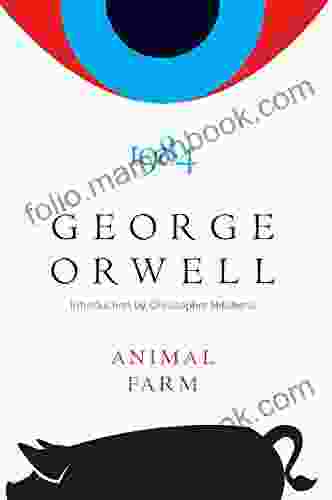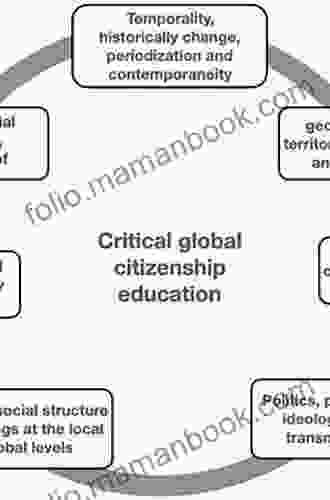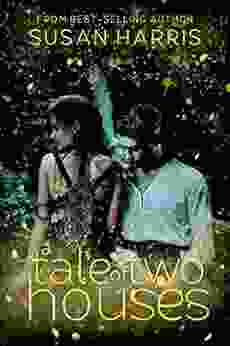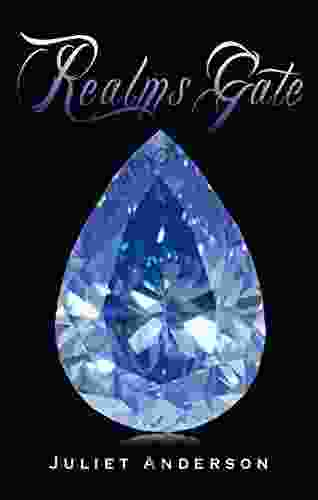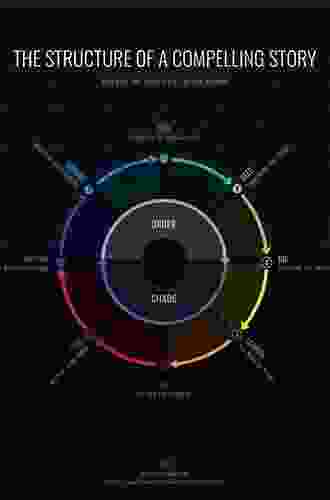The Dystopian Worlds of Animal Farm and 1984: A Journey into George Orwell's Literary Legacy

George Orwell, the renowned English novelist, essayist, and critic, is widely regarded as one of the most influential writers of the 20th century. His works, particularly the allegorical novel Animal Farm and the dystopian masterpiece 1984, have left an indelibly profound mark on the literary landscape. Both novels explore the insidious nature of totalitarianism and the corrosive effects of political propaganda, offering a cautionary tale about the dangers of unchecked power and the fragility of freedom.
Animal Farm: A Satirical Tale of Revolution and Betrayal
Published in 1945, Animal Farm is a satirical fable that deftly employs animal characters to expose the hypocrisy and corruption of the Russian Revolution. The story unfolds on Manor Farm, where the oppressed animals, inspired by the ideals of equality and freedom, rise up against their human overlord, Mr. Jones. With the resounding cry of "Four legs good, two legs bad," they establish their own animal society, governed by the Seven Commandments of Animalism.
4.8 out of 5
| Language | : | English |
| File size | : | 2309 KB |
| Text-to-Speech | : | Enabled |
| Screen Reader | : | Supported |
| Enhanced typesetting | : | Enabled |
| X-Ray | : | Enabled |
| Word Wise | : | Enabled |
| Print length | : | 405 pages |
However, the revolution is soon subverted by the power-hungry pigs, led by the cunning Napoleon. Gradually, the principles of Animalism are twisted and manipulated, and the pigs establish a totalitarian regime that is even more oppressive than the one they overthrew. The pigs engage in systematic propaganda, brainwashing the other animals into submission and silencing any dissent. The once-noble ideals of the revolution are replaced by a culture of fear, surveillance, and blind obedience.
1984: A Chilling Vision of the Future
Published in 1949, 1984 paints a chilling vision of a dystopian society where the totalitarian regime of Oceania controls every aspect of its citizens' lives. The novel's protagonist, Winston Smith, is a low-ranking member of the Party, tasked with rewriting history to conform to the government's ever-changing narrative. Winston's forbidden love for Julia and his clandestine rebellion against the Party set him on a perilous journey that exposes the true depths of Oceania's oppressive machinery.
Orwell depicts a society where Big Brother's watchful eyes are omnipresent, where privacy is a foreign concept, and where the manipulation of language is used to control thought and suppress dissent. The Party's ubiquitous propaganda bombards its citizens with slogans like "War is Peace" and "Ignorance is Strength," instilling a sense of absolute loyalty and unquestioning obedience. The pervasive atmosphere of fear and paranoia makes it impossible for any individual to escape the suffocating grip of the regime.
Themes and Symbolism
Both Animal Farm and 1984 delve into profound themes that resonate deeply with the human experience. Totalitarianism, the central theme of both novels, is portrayed as a insidious force that destroys individual freedoms, suppresses dissent, and corrupts the very fabric of society. Propaganda, another recurring theme, is depicted as a powerful weapon used by totalitarian regimes to manipulate and control public opinion.
Orwell masterfully employs symbolism throughout his works to convey complex ideas and emotions. In Animal Farm, the pigs represent the corrupt ruling class, while the sheep symbolize the easily manipulated masses. In 1984, Big Brother represents the all-seeing, all-powerful state, while the telescreens serve as constant reminders of the regime's omniscience.
Literary Style and Impact
Orwell's writing style is characterized by its clarity, simplicity, and directness. He eschews flowery language and complex syntax, instead employing straightforward prose that is both accessible and potent. His use of allegory and satire allows him to convey complex and often uncomfortable truths in a palatable and thought-provoking manner.
Animal Farm and 1984 have had a profound impact on literature, politics, and society at large. The novels have been translated into numerous languages and are widely studied in schools and universities around the world. They have inspired countless adaptations into film, television, and theater, and their themes continue to resonate and provoke discussion in the modern era.
George Orwell's Animal Farm and 1984 stand as enduring classics of dystopian literature, offering a searing indictment of totalitarianism and the corrosive effects of propaganda. Through his allegorical narratives and incisive prose, Orwell exposes the dangers of unchecked power, the fragility of freedom, and the importance of preserving individual thought and conscience. His works are a timeless reminder of the vigilance and skepticism required to safeguard our democratic values and prevent the horrors of dystopia from becoming a reality.
4.8 out of 5
| Language | : | English |
| File size | : | 2309 KB |
| Text-to-Speech | : | Enabled |
| Screen Reader | : | Supported |
| Enhanced typesetting | : | Enabled |
| X-Ray | : | Enabled |
| Word Wise | : | Enabled |
| Print length | : | 405 pages |
Do you want to contribute by writing guest posts on this blog?
Please contact us and send us a resume of previous articles that you have written.
 Top Book
Top Book Novel
Novel Fiction
Fiction Nonfiction
Nonfiction Literature
Literature Paperback
Paperback Hardcover
Hardcover E-book
E-book Audiobook
Audiobook Bestseller
Bestseller Classic
Classic Mystery
Mystery Thriller
Thriller Romance
Romance Fantasy
Fantasy Science Fiction
Science Fiction Biography
Biography Memoir
Memoir Autobiography
Autobiography Poetry
Poetry Drama
Drama Historical Fiction
Historical Fiction Self-help
Self-help Young Adult
Young Adult Childrens Books
Childrens Books Graphic Novel
Graphic Novel Anthology
Anthology Series
Series Encyclopedia
Encyclopedia Reference
Reference Guidebook
Guidebook Textbook
Textbook Workbook
Workbook Journal
Journal Diary
Diary Manuscript
Manuscript Folio
Folio Pulp Fiction
Pulp Fiction Short Stories
Short Stories Fairy Tales
Fairy Tales Fables
Fables Mythology
Mythology Philosophy
Philosophy Religion
Religion Spirituality
Spirituality Essays
Essays Critique
Critique Commentary
Commentary Glossary
Glossary Bibliography
Bibliography Index
Index Table of Contents
Table of Contents Preface
Preface Introduction
Introduction Foreword
Foreword Afterword
Afterword Appendices
Appendices Annotations
Annotations Footnotes
Footnotes Epilogue
Epilogue Prologue
Prologue Alex Grecian
Alex Grecian J N Chaney
J N Chaney Thankgod Adoyi Ocheme
Thankgod Adoyi Ocheme John Kim
John Kim Lavee Natch
Lavee Natch Scarlett Mcleod
Scarlett Mcleod Rajat Acharyya
Rajat Acharyya Jan Sheinker
Jan Sheinker Richard Sheppard
Richard Sheppard Ken Kocienda
Ken Kocienda Jules Romains
Jules Romains Shan Wee
Shan Wee Zeb Wells
Zeb Wells Reyna Biddy
Reyna Biddy Richard G Lewis
Richard G Lewis Kazuyuki Motohashi
Kazuyuki Motohashi James V Mcconnell
James V Mcconnell Thomas Greanias
Thomas Greanias Lynne Viti
Lynne Viti Jesse Q Sutanto
Jesse Q Sutanto
Light bulbAdvertise smarter! Our strategic ad space ensures maximum exposure. Reserve your spot today!
 Bryce FosterFollow ·2k
Bryce FosterFollow ·2k Orson Scott CardFollow ·18.1k
Orson Scott CardFollow ·18.1k Raymond ParkerFollow ·15.2k
Raymond ParkerFollow ·15.2k Jake PowellFollow ·7k
Jake PowellFollow ·7k Patrick RothfussFollow ·16k
Patrick RothfussFollow ·16k Brady MitchellFollow ·18.5k
Brady MitchellFollow ·18.5k Stephen FosterFollow ·17.1k
Stephen FosterFollow ·17.1k Jermaine PowellFollow ·8k
Jermaine PowellFollow ·8k

 Dean Cox
Dean CoxHow to Make Decisions Easily & Effortlessly: The...
The Different Types of Decisions There...
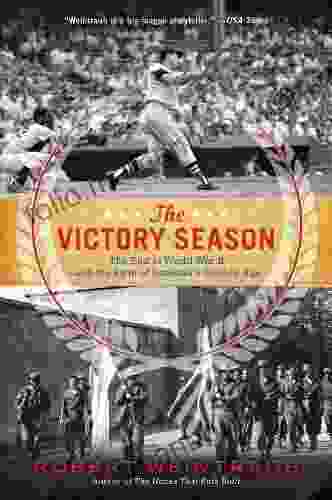
 Gustavo Cox
Gustavo CoxThe End of World War II and the Birth of Baseball's...
The end of...

 Patrick Rothfuss
Patrick RothfussThe Dantes: An 11-Family Saga of Billionaires, Soulmates,...
The Dantes is an epic family saga that follows...
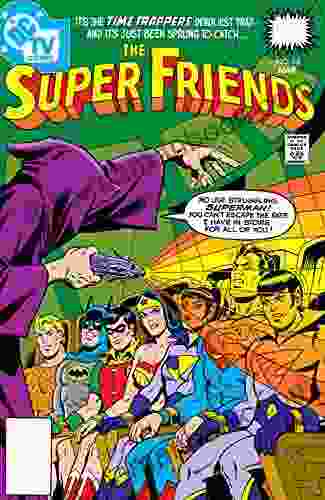
 Dylan Mitchell
Dylan MitchellSuper Friends: The Animated Adventures That Defined a...
In the vibrant landscape of American...

 Jamal Blair
Jamal BlairCollege For Students With Disabilities: We Do Belong
College can be a...
4.8 out of 5
| Language | : | English |
| File size | : | 2309 KB |
| Text-to-Speech | : | Enabled |
| Screen Reader | : | Supported |
| Enhanced typesetting | : | Enabled |
| X-Ray | : | Enabled |
| Word Wise | : | Enabled |
| Print length | : | 405 pages |


